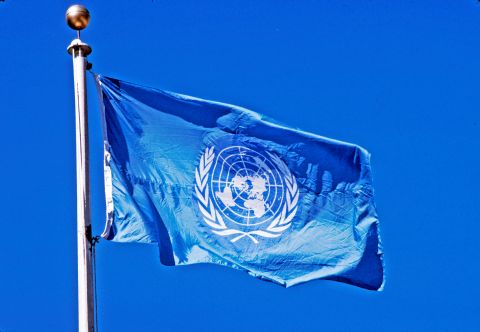Statement by Dmitry Polyanskiy, First Deputy Permanent Representative of Russia to the UN, at the open VTC of the UNSC members on MONUSCO
Mr. President,
We thank Special Representative of the Secretary-General and Head of MONUSCO Leila Zerrougui for her informative briefing. We are also thankful to Jamal Usseni, civil society representative, for the information provided.
Let me start by expressing our sincere condolences to Indonesia with regard to the attack on a MONUSCO patrol near Beni earlier this week, during which one Indonesian peacekeeper was killed and one wounded. Dear friends, please, accept our words of sympathy.
We have carefully studied the latest Secretary-General’s report on MONUSCO and have to admit with regret that, despite coronavirus, violence in the eastern provinces does not subside. On the contrary, in an apparent refusal to adhere to the Secretary-General’s call for a global ceasefire, the ADF and other armed groups seem to take full advantage of the pandemic to step up their attacks against FARDC and civilians.
Particularly concerning is the deteriorating security situation in Ituri province, where the Lendu and Hema conflict, as well as the increased activity of armed groups see a new surge with a heavy toll on the local population.
The situation in Ituri clearly proves the need to broaden support to the disenfranchised combatants in the framework of the appropriate disarmament, demobilization and reintegration programs. A national framework DDR policy, if prepared, could also play a helpful role.
We commend the measures taken by the FARDC and MONUSCO with a view of strengthening their presence in Ituri and deepening coordination in the province. We call upon SRSG Zerrougui to continue her good offices with a view of facilitating the search for a sustainable solution to the situation in the eastern provinces.
In these circumstances we find it crucially important that, despite the persisting tensions, members of the country’s ruling coalition continue to resolve their differences through dialogue and the coexistence model remains in place. We urge both blocks of the coalition to continue to work along these lines. We all need to support the J.Kabila – F.Tshisekedi tandem for the future of the DRC.
We took note that the work on a joint strategy for a phased and responsible exit of MONUSCO in the situation of the pandemic has slowed down. We should not, however, over-dramatize it. We hope that soon the mission will be able to resume consultations with Kinshasa. All decisions on the exit strategy should be made while taking into account the situation on the ground and upon careful consideration of the priorities of Kinshasa, regional states and troop-contributing countries.
Mr. President,
We also took note that MONUSCO has started implementing the recommendations of the General Dos Santos Cruz report. We would like to remind our position on the document. In principle, we are supportive of the measures being taken to strengthen coordination between peacekeepers and FARDC and enhance the operational capacity of the Force Intervention Brigade. We continue to believe, however, that cooperation on intelligence sharing should be carried out in strict compliance with the peacekeeping principles and the SC mandate. We urge the peacekeepers to privilege military reconnaissance and exercise more caution while using other forms of intelligence, especially the ones relying on special methods of obtaining information.
To conclude, I would like to reassure that the Russian Federation, both as a permanent member of the Council and as a member of the Group of Friends of the Great Lakes Region, will continue contributing to the peace process in the DRC and stabilization of the overall situation in the Great Lakes Region.
Thank you, Mr. President.
